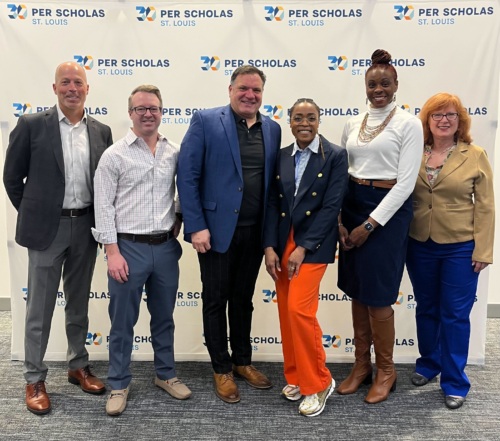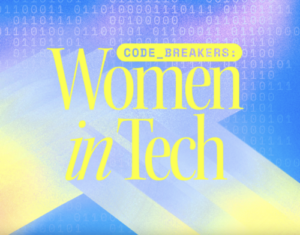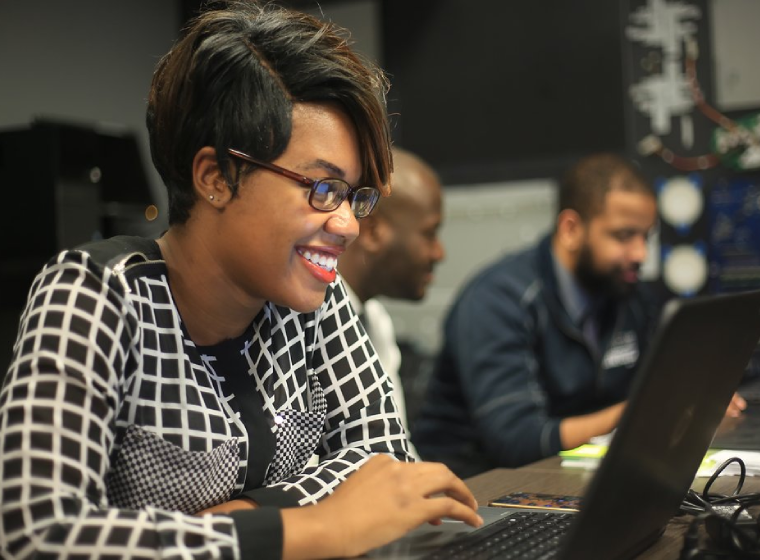
Advancing Hispanic and Latinx Presence in Tech
THE STATE OF DIVERSITY & INCLUSION IN TECH
Although there have been advancements over the years in the diversity of the tech field, the broad field of technology is still heavily dominated by white men, and now is a good time to celebrate the many accomplishments of our Hispanic and Latinx co-workers and learners while reflecting on the state of diversity in tech. Black, female, Latino/a, and other minorities remain greatly underrepresented throughout the tech industry.
In recent years, more emphasis has been put nationally on the importance of promoting diversity, equity, inclusion, and belonging (DEIB) in the workplace, but the tech industry still has a long way to go in becoming a more equitable workforce.
- For example, in 2014, Google, a subsidiary of one of the world’s largest tech companies, reported that only 2.9% of their employees were Latino/a.
- Google promised to commit over $150 million to increasing diversity at their company but, by 2020, just 5.9% of their workforce identified as Latino/a, a definite improvement, but nowhere near representative of the U.S. population.
- According to a 2021 analysis of federal government data by the Pew Research Center, Hispanic workers make up 17% of total employment across all occupations, but make up just 8% of tech workers.

WHY DIVERSITY, EQUITY, AND INCLUSION MATTERS
Currently, there are a myriad of barriers for minority individuals looking to enter the tech workforce. In addition to the bias and discrimination towards certain minorities that still, unfortunately, exist in a disproportionately high amount in the STEM fields, lack of access to opportunity and specified support within the tech field, our country’s digital divide, racial wage gaps, poverty, systemic inequalities, and even disparities in reliable internet access, are all barriers to entry for potentially talented individuals seeking to become involved in tech.
Creating pathways for more diverse talent to get involved in tech is the first step in building a diverse workforce. While tech training programs and bootcamps can help alleviate some barriers into the tech field by costing less and being quicker than the typical four-year degree, many are still prohibitively expensive and do not adequately target underrepresented groups for recruitment.
CELEBRATING HISPANIC HERITAGE
Each year, Per Scholas observes National Hispanic Heritage Month, from September 15th to October 15th, to celebrate the histories, cultures, and contributions of those and their ancestors who come from Spain, Mexico, the Caribbean, and Central and South America. A fun fact: 27% of Per Scholas’ staff and 14% of our learners identify as Hispanic/Latino!
 An important step in bringing more diversity to the tech field, beyond simply preparing learners to launch their careers, is showing people from various minority-in-tech backgrounds that success is possible for them in the tech field. In a 2021 study, the Pew Research Center found that over half of Hispanic Americans they surveyed felt that young Hispanic people would be a lot more likely to pursue a STEM degree if they saw examples of high achievers in the field who were Hispanic or Latinx. Earlier this year, Per Scholas partnered with executive advancement company Guerrero Media to create The Code Breakers: Women in Tech campaign. Each week, this campaign spotlights exemplary women who have built successful careers working in tech, breaking down barriers and paving the way for other minority technologists to pursue paths in tech.
An important step in bringing more diversity to the tech field, beyond simply preparing learners to launch their careers, is showing people from various minority-in-tech backgrounds that success is possible for them in the tech field. In a 2021 study, the Pew Research Center found that over half of Hispanic Americans they surveyed felt that young Hispanic people would be a lot more likely to pursue a STEM degree if they saw examples of high achievers in the field who were Hispanic or Latinx. Earlier this year, Per Scholas partnered with executive advancement company Guerrero Media to create The Code Breakers: Women in Tech campaign. Each week, this campaign spotlights exemplary women who have built successful careers working in tech, breaking down barriers and paving the way for other minority technologists to pursue paths in tech.
 One of our learners who was featured in this campaign is Sara Peña, a Latina woman from Boston who was working as a musician before making the bold decision to switch to a career in tech. Like many people, Sara found herself in a financial crisis during the Covid pandemic when she was laid off from her job. With no income and an insurmountable amount of student loans, Sara had to pivot to a more stable career. A friend mentioned she should look into coding, something Sara had once noted in passing as an interest, so she began researching different boot camps. Sara found Per Scholas through an online search and was intrigued by our mission and course offerings. She applied and was soon accepted into our Software Engineering course at Per Scholas Boston.
One of our learners who was featured in this campaign is Sara Peña, a Latina woman from Boston who was working as a musician before making the bold decision to switch to a career in tech. Like many people, Sara found herself in a financial crisis during the Covid pandemic when she was laid off from her job. With no income and an insurmountable amount of student loans, Sara had to pivot to a more stable career. A friend mentioned she should look into coding, something Sara had once noted in passing as an interest, so she began researching different boot camps. Sara found Per Scholas through an online search and was intrigued by our mission and course offerings. She applied and was soon accepted into our Software Engineering course at Per Scholas Boston.
Although the course was tough, Sara’s perseverance and dedication helped her through, and she thrived in the program. “It is no secret how daunting it is to…start anew in a career you never thought yourself capable of,” Sara reflected. “In moments where I thought this is too much, too hard, too overwhelming, I remembered in my heart of hearts, this is what I wanted to do and this opportunity was given to me. It was something that I didn’t want to put to waste.” Shortly after graduating, Sara started her new career as a Software Developer at engineering company nou Systems, where she has been continuing to learn. She is working toward earning further certifications and exploring all that the tech field has to offer.
- While women comprise 28.8% of the U.S. tech workforce, Latina women hold only 2% of jobs in STEM.
Spreading stories like Sara’s can help encourage other Latinos and minority individuals that success is possible for them in the tech field. Per Scholas learners of various ages, gender identities, races, ethnicities, physical abilities, and backgrounds have been able to launch thriving tech careers following Per Scholas’ courses. No one should be barred from pursuing a career in tech due to a lack of connection, and the success of our learners serves to encourage others to apply, breaking down barriers to entry in tech.
THE FUTURE OF THE TECH INDUSTRY
At Per Scholas, we are expanding in the future to different cities and doing our research to make sure there is a market that has plenty of job openings and diverse demographics to fill those openings with our skilled graduates. As we continue to train diverse individuals and diversify the tech workforce, we have to consider what the face of tech will look like in the future and how we get there.
With a more diverse workforce that includes the Hispanic and Latinx culture and history, more ideas and insight are at the helm of advancements. It has been reported that organizations ranking high in internal ethnic, gender, age, and cultural diversity regularly perform significantly higher than their industry peers in terms of financial returns and employee satisfaction. Both the business and social cases for diversity are strong. It is now up to individual companies to put in the work to improve the diversity of their workforces, and Per Scholas is happy to help facilitate the process.
The promotion of DEIB in the tech workplace begins with opportunity and intentionality. The IT field has a long way to go in order to become a totally diverse and inclusive community, but it is headed in the right direction. Per Scholas is committed to helping drive this change, transforming the face of technology by opening pathways of opportunity for diverse talent, showing minority-in-tech individuals that success is possible for them in the IT field, and helping other organizations create more inclusive, intentional, and equitable workforces.
We are committed to breaking down the barriers that keep people from entering the tech industry and our cost-free, high-quality tech training seeks to further open the pathway into tech for those who would otherwise not have had the opportunity.
Sign up for our Monthly Impact Report
More News

Donate Now
Your support makes a powerful difference in our ability to build a technology talent training solution that creates greater access and equity.
